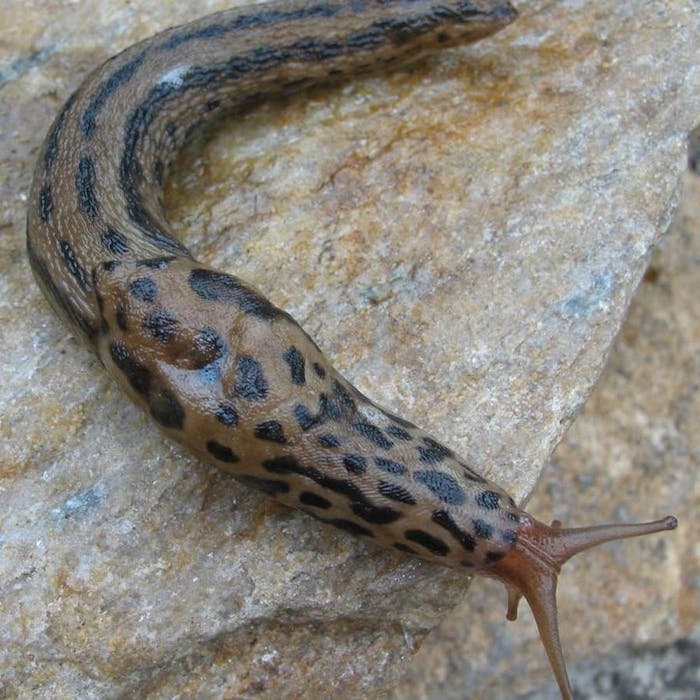
The leopard slug - the gardener's friend
Yes, you read that correctly. The Leopard Slug is a common British species that should actually be welcomed by gardeners. They don’t damage healthy, living plants, but they do eat other slugs, including those that can damage garden plants and vegetables.
Most people are not very fond of slugs. Their slimy appearance and shape is rather repellant, and their habit of destroying carefully nurtured young plants under cover of darkness is infuriating to growers and gardeners.
The leopard slug's Latin name, Limax maximus, literally means "biggest slug". The adult measures 10–20 cm (4–8 in) in length and is generally a light greyish or grey-brown with darker spots and blotches, although the colouration and exact patterning of the body of this slug species is quite variable.
At the front of the head are two pairs of tentacles. The top pair is used to sense light, and work as the eyes of the slug. The other pair is closer to the ground and are used to smell.
Leopard slugs are omnivores. By eating dead and rotting plants, as well as fungi, they recycle nutrients and fertilise the soil. They have also been known to eat food left out for pets. They are known to pursue other slugs to eat them after a high speed chase of 15 centimetres (6 in) per minute!
The leopard slugs, like all of their kind, need to keep their bodies damp in order to breathe, so are usually found in dark, moist places, particularly amongst rotting logs. The homing instinct is strongly developed in this species, which, after its nocturnal rambles or foraging expeditions, usually returns to the particular crevice or chink in which it has established itself.
Leopard slugs have a very unusual and distinctive mating method, where the pair of slugs use a thick thread of mucus to hang suspended in the air from a tree branch or other structure.
Although native to Britain and Europe, this species has been accidentally introduced to many other parts of the world.
Further reading
Links to external websites are not maintained by Bite Sized Britain. They are provided to give users access to additional information. Bite Sized Britain is not responsible for the content of these external websites.
